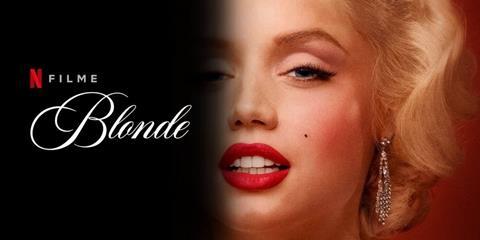The world’s top Marilyn Monroe impersonator, Suzie Kennedy, was appalled by Netflix’s movie Blonde - the first X-rated film to be released on the streaming platform.

January 2000 I was sat on stage in Hollywood about to start rehearsals for a show. In front of me was a 1954 edition of Photoplay magazine. Inside was an interview with Marilyn Monroe talking about having a child.
As a Christian I was happy and somewhat surprised to read Marilyn say that if she ever had a daughter, she would teach her daughter about God. She would tell her future daughter that God loves her, and to know that he really is her father. That God was loving and kindly and wanting to help her and not hurt her. I remember being filled with such warmth.
I had never heard Marilyn Monroe talk about God this way. It was a bittersweet read knowing Marilyn never went on to have children after miscarrying during her marriage to Arthur Miller and that she never knew her own, biological, father.
“Hollywood is a place where they will pay you a thousand dollars for a kiss and fifty cents for your soul.”
This week Netflix released the film Blonde. It’s the first “X-rated” movie to be screened on the service. Based on the novel by Joyce Carol Oates, it is a fictionalised version of Marilyn Monroe’s life which ended tragically aged 36. And having watched it, I can confirm it is very much based on fiction. It’s Marilyn’s life - reimagination.
This meant that the writer had the “creative license” to make anything happen. I hoped for a lighter, happier outcome for Marilyn - perhaps she had that child she wished for? But who was I kidding? This is Hollywood. It’s the Hollywood that Marilyn knew only too well when she said: “Hollywood is a place where they will pay you a thousand dollars for a kiss and fifty cents for your soul.”
The film has capitalised and exploited the deep sadness in Marilyn’s life.
In my opinion Blonde sold Marilyn’s soul. With sexually explicit scenes, insensitive abortion depictions and degrading portrayals this fictionalised account humiliates an icon who tried to pull herself out of the stereotype and away from the Hollywood machine. The film has capitalised and exploited the deep sadness in Marilyn’s life.
Not knowing her father and not having children is something that resonates not only to Marilyn’s life but many women’s lives. As Marilyn tragically took her own life in the final scenes of the movie, she sees the photograph of her biological father and softly says the words “I’m finally with my father”. The poignancy of this statement was not lost on me. As a Christian I have faith that Marilyn is with her father. Not her biological one, but the one we shall all return to one day. Our heavenly Father. The one that Marilyn rightly said in that interview in 1954 that truly loves her and unlike this film, will never hurt her.




































No comments yet